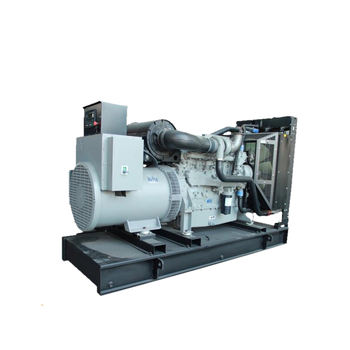Selecting the right generator set for your needs requires a thorough understanding of the distinctions between heavy-duty and light-duty models. The application dictates the choice, and making the wrong decision can lead to inadequate power supply or unnecessary expenditure. This article delves into the core differences and explores the specific applications where each type excels.
Heavy-duty generator sets are built for the long haul. They're designed to withstand continuous operation, often in demanding environments. Think construction sites, industrial plants, and hospitals – places where power outages can have serious consequences. These generators are typically powered by robust diesel engines, known for their durability and fuel efficiency under sustained loads. They’re built to provide reliable power for extended periods, sometimes even serving as the primary power source.
Light-duty generators, on the other hand, are designed for more intermittent use. They're the go-to solution for powering homes during short-term outages, providing electricity for recreational activities like camping, or supporting small businesses during peak demand. These units are often gasoline-powered, offering a balance of affordability and portability. While not designed for continuous operation, they deliver sufficient power for shorter durations and lighter loads.
Understanding the Core Differences
The key distinctions lie in their build quality, power output, fuel type, and intended runtime. Heavy-duty generators boast robust enclosures designed to withstand harsh weather and rough handling. They feature advanced cooling systems and larger fuel tanks to support extended operation. Light-duty models, by contrast, prioritize portability and affordability, often compromising on runtime and resilience.
Consider the engine itself. Heavy-duty generators typically employ diesel engines, renowned for their longevity and ability to handle consistent, heavy loads. Light-duty generators often use gasoline engines, which are generally less expensive and easier to maintain but may not be as durable under constant stress.
Practical Applications: Heavy Duty
Imagine a hospital relying on a generator during a power outage. Lives depend on uninterrupted power for critical equipment like ventilators and operating room systems. This is where a heavy-duty generator proves invaluable. Similarly, in industrial settings, production lines cannot afford downtime. Heavy-duty generators ensure continuous operation, minimizing financial losses.
Construction sites also heavily rely on these powerhouses. From powering heavy machinery like cranes and excavators to providing electricity for lighting and on-site offices, heavy-duty generators keep projects moving forward, regardless of grid availability.
Practical Applications: Light Duty
Picture a family using a portable generator to power essential appliances during a storm. A light-duty generator provides the necessary electricity to keep the refrigerator running, lights on, and phones charged. For small businesses, a light-duty generator can serve as a backup during peak demand periods, preventing disruptions to operations.
Outdoor enthusiasts also find these units beneficial. Whether powering a campsite, a food truck, or tailgating festivities, light-duty generators offer a convenient and portable power solution for recreational activities.
Choosing the Right Generator: A Question of Need
So, how do you determine which generator is right for you? Consider your power requirements, the anticipated runtime, and the operating environment. Do you need continuous power for critical applications, or is intermittent backup power sufficient? Will the generator be exposed to harsh weather conditions, or will it operate in a controlled environment?
Another important factor is fuel efficiency. While diesel engines generally offer better fuel economy under heavy loads, gasoline generators might be more cost-effective for occasional use. Think about the long-term operating costs and the availability of fuel in your area.
Perhaps you’re running a small food truck business. A light-duty, portable generator might be perfect for powering your equipment at events. But if you’re managing a large construction project, a robust, heavy-duty generator is essential for ensuring uninterrupted operations.
What if you live in an area prone to power outages? A light-duty generator could provide essential backup power for your home during emergencies. However, if you require uninterrupted power for medical equipment, a heavy-duty generator is the more reliable choice.
Conclusion: Matching Power to Purpose
Ultimately, the choice between a heavy-duty and light-duty generator set hinges on the specific application. Understanding the key differences between these two types of generators allows you to make an informed decision, ensuring a reliable power supply that meets your exact needs. By carefully considering your power requirements, runtime expectations, and operating environment, you can select the generator that best balances performance, cost, and longevity. The key takeaway? Match the power to the purpose.





